Culture
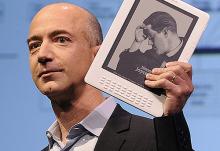
“I think it would be fun to run a newspaper.”
THE QUOTE IS from Charles Foster Kane, the character based on William Randolph Hearst in Orson Welles’ 1941 classic Citizen Kane. But it could have been Amazon kingpin Jeff Bezos this August when he bought The Washington Post. What can you get for the man who has everything? Maybe he’d like a newspaper to play with, preferably one with global political clout.
Unlike Charles Foster Kane or Rupert Murdoch, Bezos seems disinclined to monkey with the content of the Post’s coverage. His business interests may require certain government policy directions—i.e. free trade and no unions—but on those questions the Post is already with him. They differ on net neutrality (the concept that providers of internet access should not be able to discriminate against or give preference to specific internet service or content providers), so that will be one to watch. But Bezos comes to the Post saying he essentially agrees with the paper’s politics. In fact the Post’s reputation as a credible voice for corporate centrism seems to be a large part of what Bezos wants for his $250 million.
This may explain why Bezos, a titan of the rising digital world, would weigh himself down with an ancient “legacy” institution. It’s an old American story. When you get rich enough (Bezos’ fortune is estimated at $27 billion), you don’t want more money, you want power and respect. The same process played out with the robber barons in the last century. It’s just that today the evolution happens much faster. It took three generations for the Rockefellers to go from oil tycoons to philanthropists and politicians; contemporary barons such as Bezos and Bill Gates have made the switch within a couple of decades.
Still Shining
David Hilfiker is a retired inner-city physician and writer on poverty and politics who has Alzheimer’s. He writes about his experience, with the hope of helping “dispel some of the fear and embarrassment” that surrounds this disease, on his blog “Watching the Lights Go Out.” www.davidhilfiker.blogspot.com
Transported
Laura Mvula is a British, classically trained musician, songwriter, and former choir director whose debut album,Sing to the Moon,is a lush fusion of soul, jazz, gospel, and pop. While not overtly “about” faith, her arrangements are imbued with spiritual longing and visions of beauty. Columbia
OUR BODIES AND the land are one. Move the earth with your body, dance on it, farm in it, play with it; our final return to it is sacred. The soil is made of clay, like you and me—hydrocarbon molecules, layers of geological and muscular formations, alive. The soil, mountains, and valleys are layered with time like our layered muscle tissue. We dance on the earth in the face of death, for the healing of ourselves and the healing of the land, connected as farmers, dancers, painters, musicians, and lovers of the goodness of the good green earth moving through lament. Our bodies and the earth are one and their healing and grieving are interconnected.
January 2011, around the corner from my house, Anjaneah Williams was murdered, across the street from Sacred Heart Church, pierced in the side, at 2 p.m., walking out from a sandwich shop. It was a Thursday. She died six hours later at Cooper Hospital in the arms of her mother, before the children who deeply loved her. One of the gunman’s stray bullets shot across the street through the stained glass at Sacred Heart. Anjaneah’s death reverberated in the air, an exploding, echoing canyon; a screaming mother in a vacuum, unheard and deafening. Her murder was one of 40 in the neighborhood in the near half-century since the shipyard closed. Forty people on the sidewalks, on the lots where houses once stood, in a neighborhood with 28 known environmentally contaminated sites.

It seems rare these days to find an album where each song is valuable both individually and as part of the collective whole that makes up the record. Musicians are always telling us that they “don’t want to make just a few good singles with filler,” but few are able to fulfill those lofty intentions. Wilco did it on Yankee Hotel Foxtrot, where the songs were different from themselves and anything Wilco had ever done in the past, and Animal Collective did it more recently on the 2009 album Merriweather Post Pavilion with the opposite approach: each song was unified by a cohesive and consistent sonic palette. Many point to Fleetwood Mac’s 11th studio album Rumours as another example, and there are surely others depending on one’s musical tastes.
But I think a newer, much lesser known group has entered that conversation, and they’ve done it on their first studio release, nonetheless. Brooklyn-based Lucius have managed to craft an album with diverse songs, catchy hooks, and really powerful vocals and harmonies stick in your head for days. There isn’t a song on their debut, Wildewoman, I want to skip through. Bob Boilen of NPR’s ‘All Songs Considered’ perhaps says it best when describing their EP: “If it were possible to wear out a digital file, then my copy of Lucius' self-titled 2012 EP would now be scattered digital bits.”
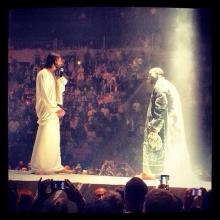
On the opening night of the Yeezus Tour, multi-platinum, Grammy award-winning rapper Kanye West brought out an actor to portray Jesus during his concert in Seattle. Most of the time when I see "White Jesus" depicted, I don't get offended because I don't find it to be historically accurate. But between this and the title and theme of Kanye's last album, Yeezus, I was initially fed up. His antics were disrespectful, offensive, and just plain unnecessary.
Before I began to write this post I searched for concert footage of the event, but I stumbled upon an interview Kanye had with Wild 94, a hit music station in San Francisco. During the interview, which was done a few days after his Seattle performance, he was given the opportunity to explain his motives behind bringing out Jesus.
"We do plays all the time. People play Jesus,” West said. “You know what’s awesome about Christianity is we’re allowed to portray God. It’s a painting, it’s a sculpture, it’s a moving opera, it’s a play, it’s a message. God knows where my heart is at.”
Then came the comment that changed the entire direction of this post:
“One of the things that I really wanted to get across is that you can have a relationship with Jesus. That you can talk to Jesus. This is the way I express it.”

Can you be scared into salvation?
For the past 41 years, Liberty University’s “Scaremare” has attracted thousands to its haunted attraction, where students in costumes deliver thrills and screams throughout a guided tour.
The university’s Center for Youth Ministries sponsors the annual October event, boasting to be one of the largest of its kind in the Southeast.
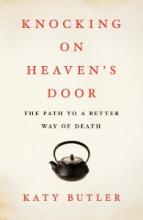
Experienced as the Butlers were in suffering and loss, they were not prepared for the technologically enhanced torments of old age.
Knocking on Heaven's Door tells what can happen when a person's mind and body endure a series of shocks that would naturally lead to decline and death — except that, through various technological interventions, the body is not allowed to decline along with the mind.
In Professor Butler's case, a major stroke wiped out most of his ability to function independently and set him on the road to dementia. At the same time, his heart was slowing down. A year after his stroke, over the opposition of his primary care physician, Butler was fitted with a pacemaker. His cardiologist strongly recommended it. He needed hernia surgery, the doctor said, and his heart was not likely strong enough to survive the operation. So he had the pacemaker installed, he had the surgery, and he was rewarded with another six years of increasingly hellish existence — not only for himself, but also for his wife and his daughter. His mind was shot. His body would not do what he wanted it to do. But his artificially assisted heart kept relentlessly ticking away.
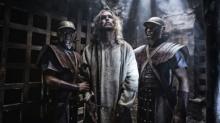
Studios and filmmakers are rediscovering a classic text as source material for upcoming mainstream films: the Bible.
Nearly 10 years after the blockbuster success of Mel Gibson’s “The Passion of the Christ,” which earned $611.9 million worldwide, studios are looking to the Good Book for good material.
Alongside the string of upcoming Bible-related films, producers from the History channel’s “The Bible” miniseries just announced that the series’ film adaptation “Son of God” will be released in theaters nationwide in February with 20th Century Fox.

Life is riddled with a smorgasbord of emotional highs, lows, tragedies, triumphs, and what might feel like monotony to fill in the gaps.
On the newest album from Seattle folk and Americana band The Head and the Heart, you can feel the wear and tear of a group who have simply experienced a lot and probably had little time to rest and reflect.
“When I think about the two records together, the first one feels like we all wanted to fulfill this dream we’d had about playing music, meeting people and traveling around,” drummer Tyler Williams told Sub Pop. “This one feels like the consequences of doing that — what relationships did you ruin? What other things did you miss? You always think it will all be perfect once you just do ‘this.’ And that’s not always the case.”
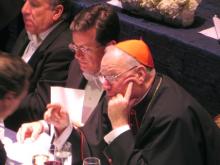
The great and the good — and lots of politicians and TV pundits, too — gathered Thursday to hear comedian Stephen Colbert roast and toast everyone from Pope Francis to his host for the evening, Cardinal Timothy Dolan.
The 68th annual Al Smith Dinner, named for the first Catholic presidential candidate in American history, at the Waldorf Astoria hotel raised $3 million for New York’s neediest children.
Colbert is a lifelong Catholic, a man who is, as Alfred E. Smith IV said in introducing him, “serious about both his craft and his Catholic faith.” The cardinal — who is also pretty funny — and the comedian first met last fall, and Colbert had Dolan on his show last month. So the archbishop of New York returned the favor by having Colbert headline the dinner.
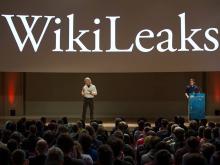
Am I the only one who finds it deliciously ironic that WikiLeaks founder Julian Assange objects stridently to how he is portrayed in the new movie, The Fifth Estate? The film, which hits theaters in wide release today, turns its attention to the organization best known for publicly sharing otherwise confidential information of various governments, including our own.
Assange is clearly a study in eccentricity. From his tow-headed locks to his lock-down work environment, he fascinates as often as he infuriates. To demonstrate their displeasure about the coming film, WikiLeaks actually leaked the screenplay to the public ahead of the movie release and has published numerous corrections they deem necessary to more accurately reflect history. They have also labeled the movie "irresponsible, counterproductive and harmful,” adjectives made that much more poignant, given that similar epithets have been leveled at WikiLeaks for their own work.
But despite this latest round of drama revolving around WikiLeaks and its lightning rod of a front man, the question still remains:
Is WikiLeaks good for America?

There are few things as exhausting, draining, and disheartening as family drama. I’m not talking low-level sibling rivalry over who gets shotgun all the time. I’m talking deep-rooted family issues that go generations back. That kind of family drama shows up in the most inopportune times in the most inappropriate places — at someone’s wedding or funeral, at the family reunion, or while grocery shopping.
But when family drama shows up in the church, it grieves me. It riles me up like nothing else does because it is in my identity as a Christian and Jesus-follower where I am all of who God created me to be and has called me to be — Asian and American, Korean, female, friend, daughter, wife, mother, sister, aunt, writer, manager, advocate, activist. The church is the place where I and everyone else SHOULD be able to get real and raw and honest to work out the kinks and twists, to name the places of pain and hurt, and to find both healing and full restoration and redemption.
So when the church uses bits and pieces of “my” culture — the way my parents speak English (or the way majority culture people interpret the way my parents speak English) or the way I look (or the way the majority culture would reproduce what they think I look like) – for laughs and giggles, it’s not simply a weak attempt at humor. It’s wrong. It’s hurtful. It’s not honoring. It can start out as “an honest mistake” with “good intentions,” but ignored, it can lead to sin.
Fortunately, there is room for mistakes, apologies, dialogue, learning, and forgiveness.
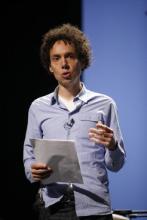
Author Malcolm Gladwell may not be known for writing on religion. His New York Times best-selling books “The Tipping Point,” “Outliers,” “Blink” and “What the Dog Saw” deal with the unexpected twists in social science research. But his newest book, “David and Goliath: Underdogs, Misfits, and the Art of Battling Giants,” also includes underlying faith-related themes, and not just in the title.
Gladwell said that while researching the book, he began rediscovering his own faith after having drifted away. Here, he speaks with RNS about his Mennonite family, how Jesus perfectly illustrates the point in his new book and how Gladwell’s return to faith changed the way he wrote the book.

Reviews of the new hit movie Gravity note that it’s an unusually fine science fiction film. What they don’t mention is that the main character represents an increasingly common theme in American religion: The spiritual “none of the above.”
Yes, the special effects are splendid. And I’ll take the word of astronauts who say the visuals capture amazingly well what it’s like to work in the microgravity of near-Earth orbit.
But there are moments where spiritual and philosophical themes take center stage.
(Spoiler alert: I’ll give no more away than I’ve seen in most reviews, but if you really want to know nothing about the movie, see it first.)
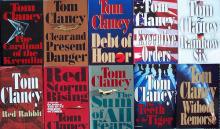
The books of Tom Clancy, who passed away this week, contain some of the most detailed description of military weaponry and procedures the public is likely to see. And people want to believe it: Clancy’s world is one in which technology can provide security and the so-called experts can be trusted to protect us. He takes a complex world and doesn’t merely simplify it, but rather creates super humans and super machines that can manage the world’s complexities.
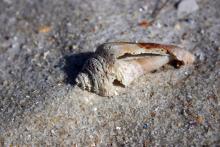
And fallen, fallen light renew!
—William Blake
Thou, this humid cloak at dusk, a blue
Air flattened, smoldering the same
Field for years. Oh, Thou—this hardened name
For You not joyously sprung, not grown to grace

WITH THE HEAT of mid-year finally over—judging by the fact that Dallas has settled into a sweater-friendly 97 degrees—it’s time to look back and see what we’ve learned from another summer filled with unpredictable weather extremes.
For example, a couple weeks in August were actually extremely comfortable, which was no help to my crusade to convince Fox-loving friends that the earth is warming. Lately, even scientists have been of little use, adamantly refusing to blame rampant forest fires and extreme droughts on climate change. They insist on “analyzing” patterns of weather “over time” to honor “standards of science.” There’s nothing worse than climatologists dragging their feet when there are righteous accusations to be flung. Global warming is behind EVERYTHING wrong! You know it. I know it.
Okay, sorry.
But this summer had way too many examples of the extreme consequences of climate change, including deadly tornadoes, inundating floods, and town hall meetings that brought forth a storm of discontent. Unsuspecting members of Congress had left the comforting gridlock of Washington, D.C., and, failing to first check for a full moon, had innocently invited questions from constituents in their home districts. This is almost always a mistake. You really need to test the water before you just walk into a home district unprepared.
SOIL AND SACRAMENT is Fred Bahnson’s story of finding God through sustainable farming. A trained theologian, he learns to best live out his faith with shovel in hand, practicing a method of permanent agricultural design principles called “permaculture.”
We follow him through the liturgical year on an agrarian pilgrimage from one faith community to another, digging into the big question of how to best love his neighbor. His answers are uncovered through building relationships and healthier soil, communing with others and his Creator in the field. From jail cell to monastic cell, from a rooftop in Chiapas to his four-season greenhouse, Bahnson finds the intersection of community and solitude between the field rows. Just like the first Adam from the adamah (earth), we learn how to give more to the soil than we take away and to reverently observe the garden as fruitful and multiplying. “Human from humus”—he had me at hugelkultur. (Look it up—it’s really cool.)
Bahnson begins his pilgrimage in a Trappist monastery in South Carolina during Advent, joining the brothers in prayer and mushroom-growing practices, entering the dark cold winter silence of vigils and the soil. Bahnson then flashes back to 2001, to Holy Week in Chiapas with a Christian Peacemaker Team accompanying the Mayan Christian pacifist civic group Las Abejas—“The Bees.” In Chiapas we sit and eat with Bahnson on Maundy Thursday, corn tortillas and slow-cooked black beans made into holy elements, partaking of an “ancient and unnamed liturgy,” eating our way into mystery. Bahson ordains the creatures of the earth as perennial ministers of the soil, notes the transubstantiation of seed and potluck as Eucharist. He writes of beginning to think of growing food as the embodiment of loving his neighbors, the journey of the liturgical calendar through the mystery of soil. The book is a slow dance, a cosmic one-turn around the sun.
IN MY MEMORY from nearly 50 years ago, the great pitcher Sandy Koufax is going against my Phillies in the old Connie Mack Stadium in Philadelphia. The records show that such a game occurred on June 4, 1964, the right year for my memory, so it is possibly correct. But I cannot prove I was there that day, nor can anyone prove I wasn’t. For me, it has entered the realm of myth—I may not actually have been there, but in my memory I believe I was. In a similar manner in religious experience, historical events originally recorded as perhaps inexact memories come to be believed as literal truths.
In Baseball as a Road to God, John Sexton uses the categories of the study of religion to explore the meaning of baseball. Sexton, president of New York University, has taught a popular seminar on this topic for more than 10 years, and in this book collects the essence of those classes.
For a baseball fan, the well-told stories of historic players, games, and seasons are by themselves worth reading and will evoke many memories. But rather than a random collection of stories, Sexton groups them in topics—sacred place and time, faith and doubt, conversion and miracles, blessings and curses, saints and sinners—illustrating each with fitting examples. Underlying it all, he proposes, are two words and concepts that link baseball and religion. Both illustrate the significance of the ineffable, “that which we know through experience rather than through study, that which ultimately is indescribable in words yet is palpable and real.” And both have moments of hierophany—a term devised by religious historian Mircea Eliade to signify “a moment of spiritual epiphany and connection to a transcendent plane,” a “manifestation of the sacred in ordinary life.”
THIS SHORT VOLUME by Jacqueline Battalora, a professor of criminal justice at St. Xavier University in Chicago, addresses a very important topic in American history and society: The legal, social, and political invention of the category of “white people” as a privileged group, which defines them as the normative Americans over against others, variously defined as “black,” “colored,” “Indians,” and “mulatto.”
When English settlers founded the New England colonies, they referred to themselves as British. As more people from other countries of Western Europe arrived in the area, they tended to group those they saw as similar to themselves as Christians, Germans, etc.—the term “white” was not used—over against “Negroes,” Indians, and rival colonizers such as the Spanish and French.
The term white was first used in colonial law after Bacon’s Rebellion in 1676, during which some African and European indentured servants formed an alliance. Virginia’s colonial leaders responded with a package of laws that created a racial caste of African-descended slaves, distinguished from European servants. These laws decreed that African slaves could not be freed and free Africans could not hold office, serve in the army, or hold European bond laborers. This group was thus disprivileged, in contrast with those of European descent who were defined as “white.”